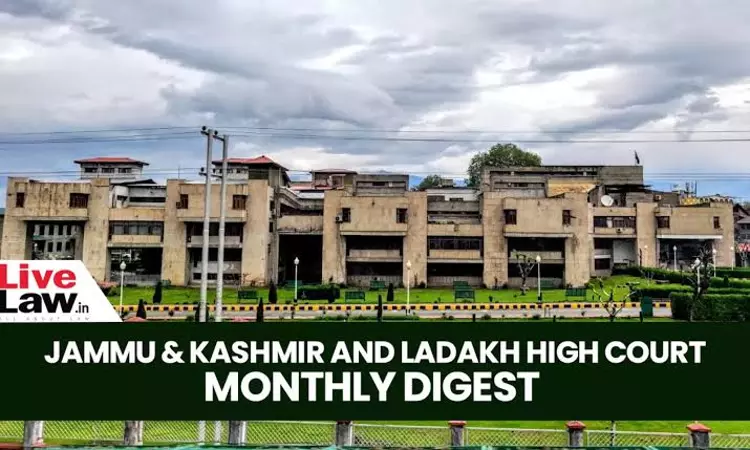Jammu & Kashmir And Ladakh High Court Monthly Digest: July 2024
LIVELAW NEWS NETWORK
4 Aug 2024 5:00 PM IST

Next Story
4 Aug 2024 5:00 PM IST
Nominal Index:MOHAMMAD SHAHBAZ MIR VS UNION OF INDIA 2024 LiveLaw (JKL) 175Gorav Sayal Vs UT of J&K 2024 LiveLaw (JKL) 176Ramtech Software Private Limited Vs Ut Of J&K And Another 2024 LiveLaw (JKL) 177Manzoor Ahmad Yatoo Vs UT of J&K 2024 LiveLaw (JKL) 178Bansi Lal Vs UT of J&K 2024 LiveLaw (JKL) 179Mehraj ud din Andrabi Vs Zia Darakshan 2024 LiveLaw (JKL) 180Yawar Ahmad Malik...
